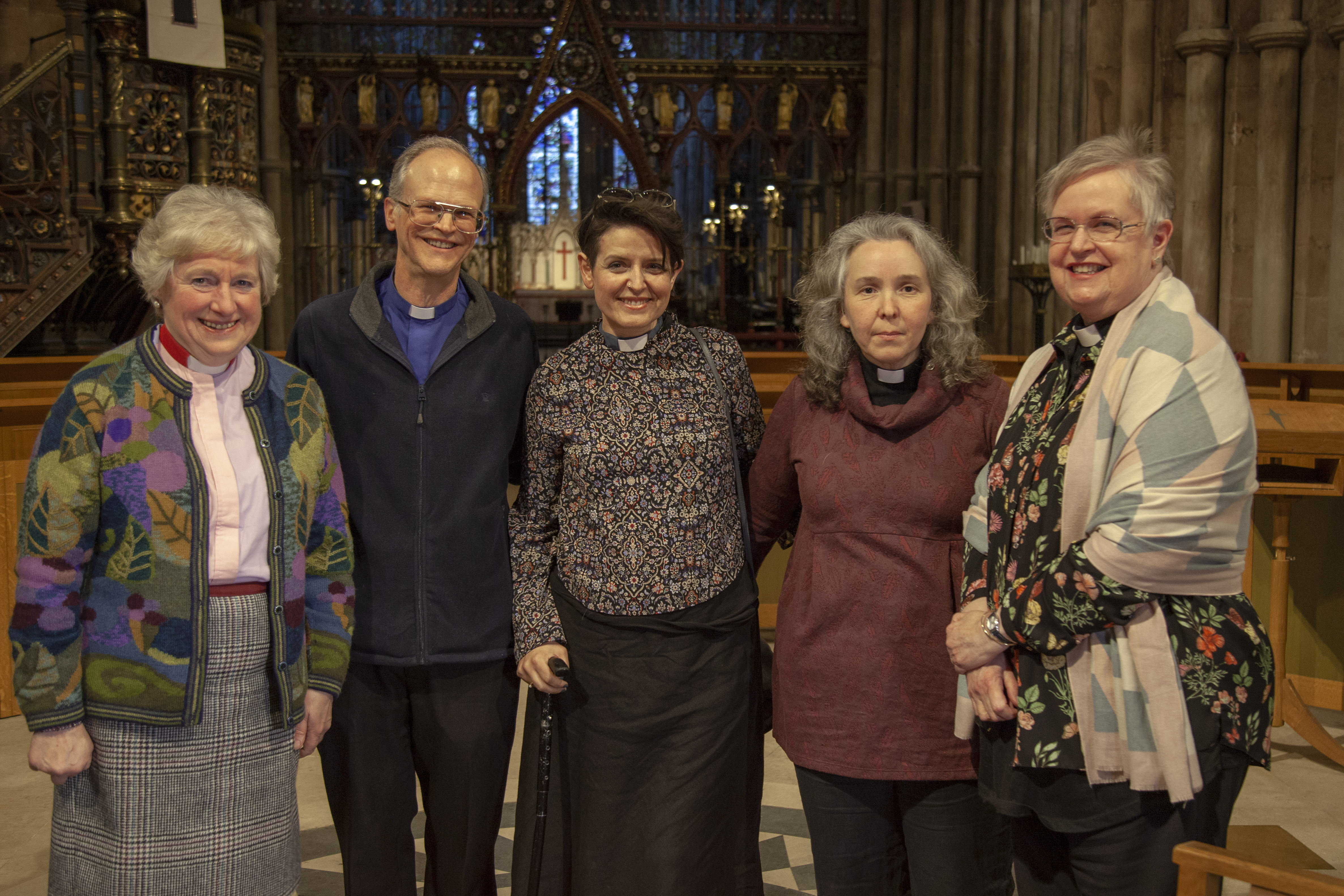
Twenty-five years on from the first ordinations of women as priests in Lichfield Cathedral, people have been reflecting on how the Church has changed in that time.
It was in 1993 that the General Synod, the parliament of the Church of England approved the change enabling women to become priests, and the first service of ordination took place in Bristol on 12 March 1994 conducted by the then Bishop of Bristol, Rt Revd Barry Rogerson who had previously been Bishop of Wolverhampton.
There was a seven year gap where women had been permitted to be ordained Deacon but not Priest, so in 1994 there were around 1600 women around England who were eligible to be ordained as priests: 51 in Lichfield Diocese.
One of those in the second of two ordination services on 23 & 24 April 1995 in Lichfield Cathedral was Pippa Thorneycroft. At the time she held the role of Diocesan Adviser for Women in Ministry, and met recently at the cathedral with two of her successors to discuss the changes and challenges of these 25 years.
It wasn't until twenty years later in 2014 that another change in the law enabled women into the third 'order' of ministry, that of bishop, and now roughly one sixth of the bishops are women.
The most senior role currently held by a woman in Lichfield Diocese is the Archdeacon of Walsall, a role occupied by Ven Dr Sue Weller since 2015.
"I remember being asked when applying for ordination before the vote for women priests 'What happens if the vote isn't approved?' and I replied 'I am called by God to be ordained: it's not my decision as to what form of ministry that takes' " she says.
Sue was ordained as both deacon and priest in Lichfield Cathedral. "It was often through people experiencing the ministry of woman that women's ministry has been embraced. I was the first woman to even read a lesson in some churches which would be quite routine now. As Archdeacon, I've been the first woman to preside at some churches. Knowing it's the Gospel that is at the heart of all our ministry, I've seen an increasing openness in working together across the traditions.

"When I worked as a scientist before ordination I experienced opposition as a woman - there was a very clear glass ceiling even though no legislation prevented promotion in theory. Although there is still a way to go in the church, we're not unique in that.
"25 years on women in any profession should approach their vocation with an expectation of being able to fully use their God-given gifts and talents and be pro-active in doing so."

See part 1 here.
Both videos may be seen and used in shorter segments here.